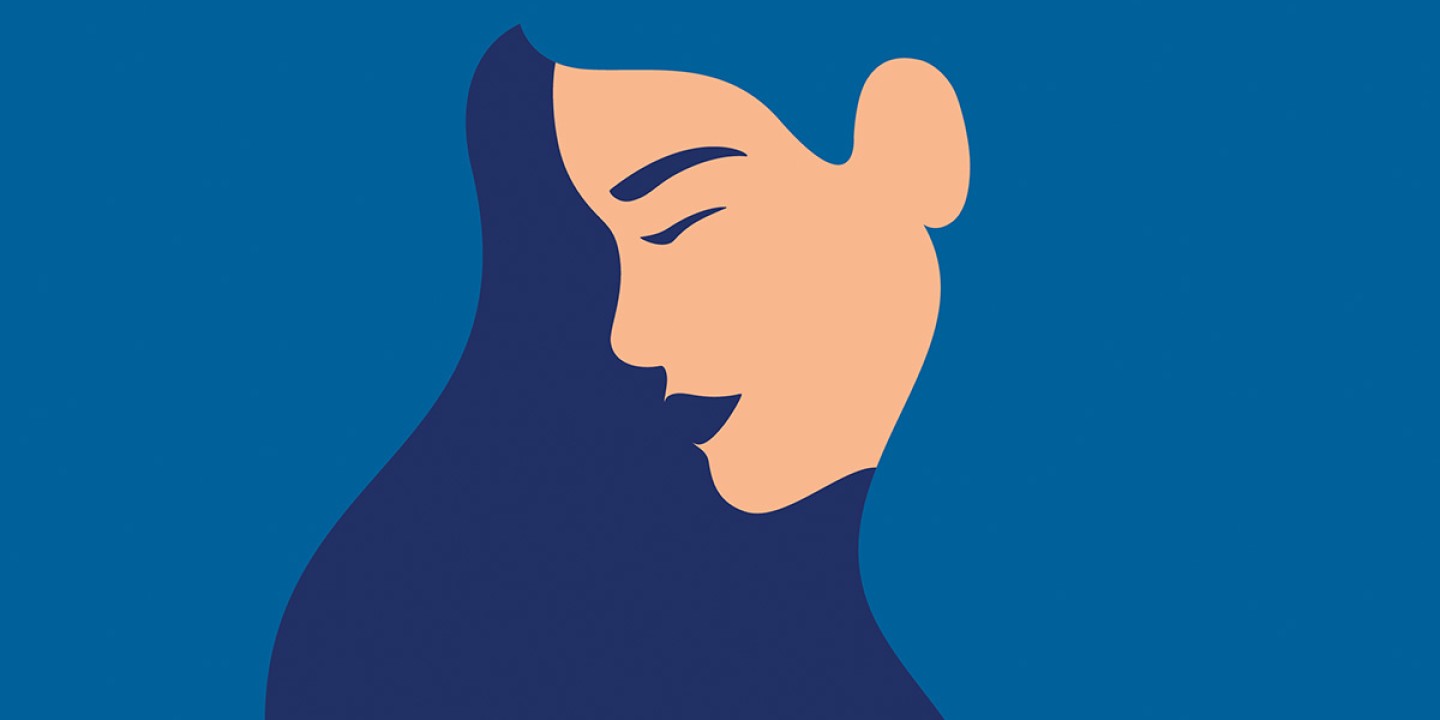We need a word for mothers whose children have died
Karla F. C. Holloway offers one from Sanskrit: vilomah.

I remember the phone call with my friend Rebecca, as she recounted the moment the bleeding began—in the airport, returning from vacation—and how many sleepless days passed before her first child was released into the toilet bowl in a rush of scarlet and sweat. I was not there, but I can see her: her blond hair, her feet pressed into the tile floor to steady herself. I worked as a doula for two years, and I’ve witnessed 20 births. I understand the stages, the way the baby flips and bends through the canal, the way a woman writhes.
Yet this birth would have been different. Rebecca’s child had already been dead for weeks; the only anticipation that remained for Rebecca was the certainty that her labor pains would end with the child’s expulsion. After Rebecca’s loss, more friends revealed their own stories of private blood, a future ended. They felt a sense of betrayal—the pregnancy wasn’t supposed to end in death. Their body wasn’t supposed to fail. They were supposed to become mothers of living children.
Read our latest issue or browse back issues.
Now, what to call them? Were they to stand on Mother’s Day Sunday for the applause, the roses passed along the aisle to their waiting hands? I began to wonder what title to give the women who have lost their children too early, one that can honor their unique pain.
We lack a word in English to describe this kind of loss. The word orphan belongs to children who have lost parents. To be orphaned is to be adrift from one’s own history, from shared traits and stories passed across genetic strands, and from your own elder self. The word originates in the Greek language, and its literal meaning is “deprived,” which calls to mind the economic hardship that befalls an abandoned child.
The state of Colorado named the infant who would later be my sister-in-law an orphan. Before the adoption that brought her into my husband’s family, she, as a baby, was laid on her back for hours without attendance. At six months she still couldn’t roll over, though she should have been sitting up with ease; instead she’d grown a neck like a sapling, which she could stretch to afford her a view of the room full of grown-ups who never noticed her.
In many languages, a parent who has lost a child is called an orphaned parent, as in the German phrase verwaiste eltern. To be an orphaned parent swaps the object of orphanhood. Here, Mary becomes the prototype of a bereaved parent, gazing on the lifeless body of Christ at the crucifixion. In a traditional Ukrainian Lenten song, the congregation sings the part of Mary, who calls herself сирота, orphaned in her grief.
Such destitution calls to mind the Black Madonnas that have appeared throughout Christian history, as in the iconography of Mark Doox in his 2016 painting Our Lady, Mother of Ferguson and All Those Killed by Gun Violence, which centers on a Black Mary and her martyred Black son. Doox’s Mary raises her hands impassively, her head haloed as in traditional Byzantine icons. Yet while many icons have Mary holding the Christ Child in her arms, here the child is a silhouetted figure within the scope of a gun, pointed at Mary’s own chest—she and her son are a literal target, even as they hold their hands passively toward heaven. Meanwhile, the sacred heart of Christ glows, tiny and red, in the very center of the darkened man.
I began to deeply consider this question of what word to use in the days after the traffic stop that stole Katie Wright’s son Daunte from her, in the same state where George Floyd choked on the asphalt—an accident, said the police officer, who reached for a Taser and instead unloaded her gun into Daunte’s chest. In circumstances like these, the word bereaved or bereft seems inadequate to capture such pain.
In my search for the right word, I discovered Karla F. C. Holloway, a professor of English at Duke University who herself lost a child. Holloway writes that she felt “punished by this empty space of language.” Noting that the word widow comes from Sanskrit, she decided to look for another word from that ancient language to name her tragic identity. She found vilomah, which means “against the natural order.” In response to Holloway, scholars pointed out that the original Sanskrit word does not connote the death of a child. But it does connote the inversion of what is right, the opposition of what is natural.
It is the inversion of what is right, the opposition of what is natural, that the child should die before the parent. Vilomah is legacy erased, a genetic line extinguished as if it had never existed, oblivion, a reversal of creation itself. Yet claiming a name provides a balm. As Holloway puts it, “the difference between today’s grief and tomorrow’s is that now there is a name. Vilomah. A parent whose child has died.”
While I have not suffered the death of a child, I am a mother. I first understood motherhood as a shared body. Then, the twin pains of pressure and release arrived to move the baby up and out; to me, childbirth felt as if my own flesh sought to part from me, a foretaste of what it meant to mother a child. For to be a mother is to be cleaved, to be severed violently from the one you bore. From the perspective of the mother, a child’s individuations are each a form of absence. As a child finds their own being, the mother experiences a loss of union they once shared.
Still, I can recognize the difference between ending a relationship and nonexistence—the negation of being, an oblivion, the very grief that makes the loss of a child unlike any other loss. Chinese offers its grieving some helpful metaphors, which Holloway uncovered in her research: 白頭人送黑頭人 (Cantonese), meaning “the white-haired ones carry off the black-haired,” and 黃梅不落青梅落 (Mandarin), meaning “the green plums fall before the yellow ones.” The unripe plums fall too soon, leaving their ripened and greyed elders to bury them.
Perhaps I am digging into the dictionary in search of the right word as a way to make amends with my own mother, with whom I no longer speak. The reasons I halted my relationship with her are complex, but the reality has turned her into a vilomah and me into an orphan, a loss that moves in like a hurricane whenever the holiday season arrives. It is the greatest grief of my life, which gives me great empathy for those who have lost loved ones to more obvious maladies. Grief is an invisible disability, especially the loss of a child, which cannot be seen without first being named. The vilomah, in particular, is the emptied, the unnatural, the out of time; the bereaved parents have no way to represent what they’ve lost.
Yet a doula friend once told me that the best way she’s found to support a family during a stillbirth was, as she put it, to “separate the hello from the goodbye.” In this way, the joy at meeting the child sits alongside the grief of losing the child. She tells parents to play music, dress the child in their Sunday best, press the foot into clay, and hold the body close to their own—because this really happened. You made this baby; this baby was once yours, alive and breathing, the good and bad side by side.
For Rebecca, for my mother, for Holloway, and perhaps for you, I say we need vilomah to name the complex joy and grief that means you have a child and then you do not have a child. The bereaved parents are both the haves and the have nots, the ones who have known deep love and lost it. Yet even here, the sacred heart of Christ beats red.
A version of this article appears in the print edition under the title “Orphan, widow, vilomah.”






